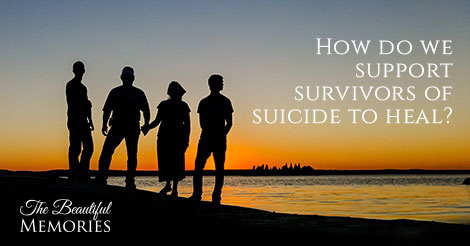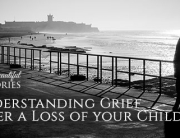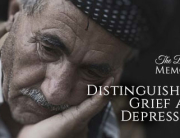How do we support survivors of suicide to heal? – By Gerald Boh
Losing a loved one by suicide is a devastating and traumatic experience. These survivors may feel like their world have fallen apart, and they are left feeling lost, confused and empty. The unexpected nature of the death severely affects them emotionally and survivors always struggle to make sense of the suicide. As a result, they may go through a whirlpool of strong emotions of pain, loss, sadness, anger, panic, guilt, loneliness, and shame. Critically these emotional experiences could have a negative impact in other aspects of their lives e.g. relationships, work, school.
In addition, survivors may be asking themselves these questions:
- Why did this happen? Why didn’t I detect the signs?
- Could I have done something to stop this from happening?
- How can I ever go on living?
Therefore it is important to understand that survivors of suicide deaths desperately need unconditional support and understanding. If a friend or family member has experienced the death of someone they loved from suicide and you are not sure how to go about helping him or her.
The following guidelines could support you to take positive actions.
- Accept The Intensity Of The Grief
- Listen With Your Heart
- Avoid Providing Simplistic Explanation and Clichés
- Respect The Importance To Grieve
- Realize The Uniqueness Of Suicide Grief
- Be Aware Of Special Occasions e.g. Birthdays, Holidays And Anniversaries
- Be Aware Of Support Groups
- Respect Spirituality And Faith
- Work Together As A Team
Accept The Intensity Of The Grief
Do not be surprised by the intensity of their emotions and, sometimes, when they least expect it, they could be overwhelmed by their grief. Understand that survivors may find it hard to deal with complex emotions related with guilt, fear and shame, much beyond the limits experienced in other types of deaths. Be compassionate, empathetic and patient. Allow them the space and time to grieve.
Listen With Your Heart
Be willing to listen is often the best way to offer help to someone who needs to talk. Do not worry about what you need to say or not knowing what to say. Just focus on listening to what they are sharing and feeling their emotions. Let them know you are with them no matter what even if you are unsure of what you can do or say as it is often comforting for them. Take note the survivor may repeat the same story about the death over and over again. Understand this repetition is part of his or her healing process. Simply listen without judgement and understand. And, remember, you don’t have to have the answer.
Avoid Providing Simplistic Explanation and Clichés
Avoid judging or providing simplistic explanations of the suicide. Do not make unpleasant comments about the person who died by suicide like “out of his or her mind”, “mentally sick” or the equivalent as these would only complicate the situation. In addition, words, particularly clichés, are extremely painful for a suicide survivor. Clichés are trite comments often intended to downplay the loss by providing overly simplified solutions to difficult realities. Comments like, “He is in a better place,” “Be strong,” “Time will heal all wounds,” “Think of what you still have (e.g. children)” or “You have to be strong for others” are not constructive. Instead, they hurt even more and make a survivor’s journey through grief more challenging. Suicide survivors need a lot of help in coming to term for understanding of what has happened. In the end, their personal search for meaning and understanding of the death is what is really important.
Respect The Importance To Grieve
Often ignored in their grief are the other family members (e.g. spouses, parents, siblings, relatives, children) related with the person who had died by suicide. Why? Because of the taboo nature of the death, it is sometimes kept a secret. If the death cannot be discussed openly, the grief may be unresolved. You may be the only one willing to be with the survivors and your physical presence and empathetic listening will support the healing process. Allow the survivors to talk, but do it gently. Sometimes you may need to wait and let them know you are ready to listen if, and when, they are ready to share their thoughts and feelings.
Realize The Uniqueness Of Suicide Grief
Remember that no one will respond to the suicide death of someone they loved in exactly the same way. Because the grief experience is unique, be patient. The process of grief takes a longer period, so allow the survivor to manage the grief at his or her own pace. Don’t criticize what is inappropriate behaviour and don’t impose your values.
Be Aware Of Special Occasions e.g. Birthdays, Holidays And Anniversaries
Survivors of suicide may face a more difficult time during special occasions like birthdays, holidays and anniversaries. These events could intensify the absence of the person who has died. Be respectful of their pain as a natural expression of the grief process. Remind yourself to always use the name of the person who has died when communicating with the survivors. Hearing the name can be comforting as it confirms that you have not forgotten this important person who was an important part of their lives.
Be Aware Of Support Groups
Support groups are a good way to help survivors of suicide. In a group, survivors are allowed and encouraged to tell their stories as much, and as often, as they like in a supportive and accepting environment. Do help survivors locate such a group and this practical effort on your part will be appreciated.
Respect Spirituality And Faith
If faith is part of their lives, let them express or utilize it in ways that seem appropriate. If they are angry with their religion e.g. God or equivalent, do not stop them from talking about it. Don’t be a judge, be an empathetic listener. Survivors may also need to understand how religion may have complicated their grief (e.g. believing people who killed themselves will end up in hell). Do not attempt to explain theology, but please listen and learn. Whatever the situation, your desire to listen without judging is the critical helping tool.
Work Together As A Team
Family and friends who experience the death of someone to suicide should not suffer alone in silence. As helpers, you need to work together to provide support and acceptance for survivors who need to grieve in healthy ways.
Finally to experience grief is the result of having loved. Suicide survivors must be given this right. While the above guidelines can be helpful, it is important to realize that supporting a suicide survivor heal will not be an easy task. You may have to give more concern, time and care than you ever knew you had. But this effort will be more than worth it.






Leave A Comment
You must be logged in to post a comment.